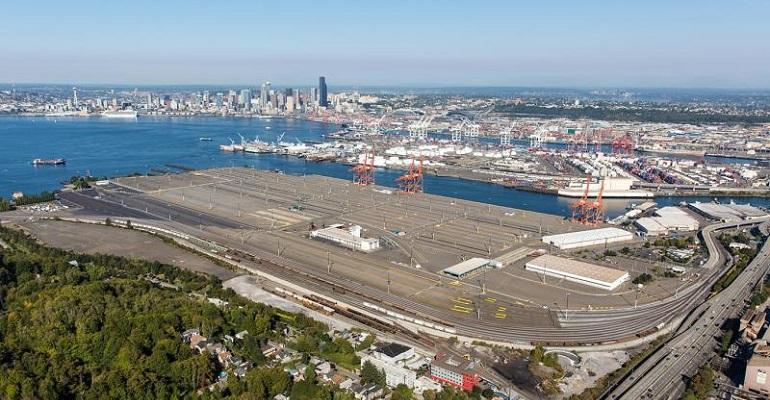GP General Procurement Company Limited (GENPRO) was delighted to welcome trade and logistics expert Dr. Jan Hoffmann as its keynote speaker at the company’s breakfast networking event in Athens during the Posidonia week to discuss key challenges in shipping and trade.
Dr. Hoffmann, Head of the Trade Logistics Branch at United Nations Trade and Development (UNCTAD) shared his unique perspective on “Geopolitical Turbulence and Maritime Procurement: Building Resilience in a Complex Environment” at the event, which brought together GenPro members, contracted suppliers, and colleagues, for a morning of networking and global insights.
Exploring the impacts of geopolitical events on maritime supply chains, Dr. Hoffmann opened with a recap of ‘the story so far’ – key moments which shaped the industry as we know it. Dr. Hoffmann emphasised the crucial timing of the industry’s response to unexpected events, citing examples such as the rapid adoption of e-documents and other digital solutions during the COVID pandemic.
A trilogy of factors – geopolitical challenges, socioeconomics, and the environment all play a contributing role in the success of the shipping industry. Consequently, the speed of response and future-facing actions such as utilising tech tools, taking action on decarbonisation issues and agility all play a role in overcoming challenges presented by geopolitical developments.
“Overall, the long-term trend for the shipping industry’s infrastructure is positive,” he said. Hoffmann described three specific reasons affecting the outlook in shipping and trade: developing countries are increasing their participation in shipping and seaborne trade; improvements in logistics services are enhancing efficiency and connectivity; and ports are becoming more efficient with streamlined operations and reduced delays.
For procurement providers such as GenPro, these trends translate into wider opportunities for collaboration and partnerships with suppliers from diverse regions. “I think we are on the right track,” said Dr. Hoffmann, emphasising that maritime stakeholders can only be future-ready if they become more agile and open to technology investments.
Dr. Hoffmann, a noted author and expert in global trade and logistics, also shared valuable strategies with participants for mitigating risks associated with geopolitical unrest or unexpected events. The importance of developing contingency plans to alleviate the effects of disruptions can position companies on a stronger footing. Companies need to increase their use of technology tools and take dynamic actions in terms of decarbonisation to stay ahead, considering the rising demand for supply chain transparency.
GenPro’s Managing Director, Maria Theodosiou, noted that whilst the supply chain industry is expanding into new areas, geopolitical instabilities require GenPro to increase its vigilance and respond in targeted ways, ranging from how suppliers are vetted to rigorous category-specific audit protocols.
Socioeconomic and climate change risk assessments are additional proactive steps GenPro takes to mitigate risks for its members and supplier network. GenPro’s commitment to sustainability is a business imperative, essential for maintaining profitability, relevance, and reliability in a rapidly changing world. Its sustainability report is an example of a transparent approach to environmental and social governance. “We take our role very seriously and understand the value of facilitating industry-wide conversations such as this one today,” she said.
By leveraging GenPro’s extensive network and expertise, shipowners can streamline and optimise their operations, making them more agile and better equipped to navigate the complexities of today’s geopolitical climate.
Ms Theodosiou concluded, “As we look into the future, whatever it may hold, GenPro will continue to champion procurement with purpose, driving value back beyond black and white pricing. Our focus on long-term value, adaptability and enhanced responsibility ensures that we not only meet the demands of today but also anticipate and meet the challenges of tomorrow. We see that the backbone of survival for maritime procurement companies is resilience and sustainability.”
Source: Hellenic Shipping News





